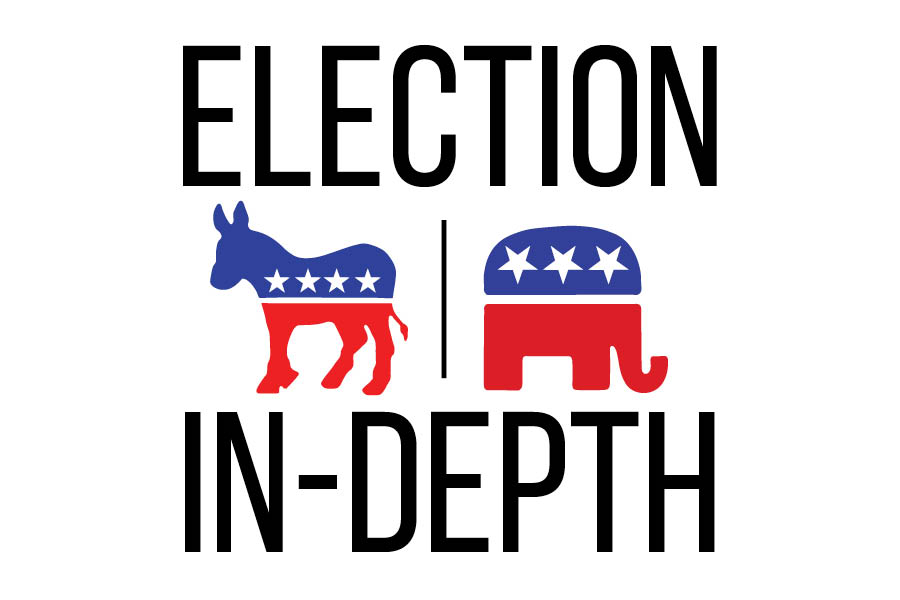Your donation will support the student journalists of Omaha Westside High School. Your contribution will allow us to purchase equipment and cover our annual website hosting costs.
POLITICS IN THE CLASSROOM: Students and staff on politics place at school
November 4, 2016
Westside staff received an email calling attention to the Westside Community Schools policy regarding politics on Sept. 27. Employees were reminded that “Under Nebraska law, you cannot use (or authorize someone else to use) any school district property or resources or funds to take a position or campaign for or against a candidate or an issue appearing on a ballot.” Staff members are, however, permitted to express their opinion.
This year, students and teachers alike have seemed to be particularly vocal on their political stances.
“Discussing politics and the political process is one of the ways that we learn how our country functions,” principal Jay Opperman said.
Opperman also believes politics should be addressed in the classroom so students are able to learn how to navigate the subject correctly.
Despite the educational benefits, these types of conversations can have negative impacts. If people take a stance on a candidate or policy, it can challenge others’ positions. This can create tension, but Opperman said he would rather have the conflict occur in the controlled environment of a classroom, under the eye of an instructor. That way, “teachers can talk about the process and what ethical politics look like.”
“[Teachers] have the right to give [their] opinion as an individual,” Opperman said. “However, it’s not our job to influence any one direction from a teacher perspective or a school perspective.” According to a school survey of more than 400 students, 65 percent of students believed that teachers influence students’ political views. Some 35 percent of students think otherwise.
This political season, students and teachers have also felt tension and uneasiness in the classrooms. Social studies teacher Amy Studts notes how politics can be personal. In order to not influence her students with her personal beliefs, Studts does not mention her opinions. However, teaching students about politics is something that she said she believes is applicable to the real world and part of her role as a teacher.
“I think it makes students more aware of what’s going on in the real world,” Studts said. “The role of president is a huge responsibility so the more informed kids are, the greater it will be for the future.”
Social studies teacher Jonathan Preister is passionate about the effects politics in the classroom can have on his students. Preister doesn’t hide his political affiliation but approaches politics in a way that he feels does not intimidate students. He said he values engaging in a dialogue with students, over preaching political beliefs. To him, telling students that their opinions are wrong crosses the line. He strives to be welcoming to others’ opinions while also showing students that they can do the same.
“I am a very strong advocate for teachers, in a school setting, showing students how you can have a healthy dialogue, how you can discuss politics, and look at other people’s perspectives,” Preister said. “We don’t need teachers that are afraid to show their political feelings and their positions because of fear of consequences that they will have, but they should want to show students that they are role models in the ways that they approach these things and the dialogues they engage in.”
When it comes to what crosses the line, several students we interviewed seemed to believe that teachers picking a side and showing bias by was taking it too far.
“Expressing what side you’re on kinda crosses the line,” senior Lauren Mott said.
In reality, teachers are allowed to express their views. According to the email mentioned earlier, the staff members are permitted to “express [their] personal opinion.” Although there’s no actual rule preventing teachers talking about what they believe in, doing so can create an uncomfortable environment for their students.
“I think if a teacher says something opposite of your view, then it just makes you dislike a teacher more,” senior Tyler Clark said. “But if they say something the same as your view maybe they can reinforce it.”
Opperman said he worries a bit during the election season.
“As a building administrative, this is a time that always makes you a little uneasy,” Opperman said. “Because it is a time where it’s more likely that [an adult or student] would vocalize their opinion, so [we’re] always hopeful that people do it in a respectful manner.”

